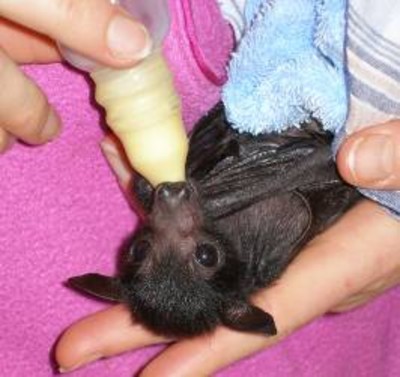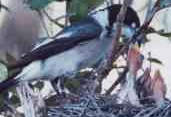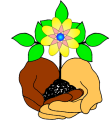List of Resources for Understanding, Living and Management of Flying Foxes
 The recent outbreak of the potentially deadly hendra virus is a cause of great concern to horse breeders and farmers alike. According to the Department of Primary Industries, although the virus can be transmitted from horses to humans, found in bats, there is no evidence that it can be transmitted directly to humans. Flying foxes are critical to the environment and a protected species. Culling is not only cruel but also ineffective. (Ref: Flying Foxes and Hendra Virus; The role of flying foxes in Hendra virus)
The recent outbreak of the potentially deadly hendra virus is a cause of great concern to horse breeders and farmers alike. According to the Department of Primary Industries, although the virus can be transmitted from horses to humans, found in bats, there is no evidence that it can be transmitted directly to humans. Flying foxes are critical to the environment and a protected species. Culling is not only cruel but also ineffective. (Ref: Flying Foxes and Hendra Virus; The role of flying foxes in Hendra virus)
There are many effective steps people can take in reducing the risk of horses and people getting infected. See:
Reducing the Risk of Hendra Infection in Horses
Reducing the Risk of Hendra Infection in People
Flying foxes are the only flying mammals and perform the quintessential task of pollinating and dispersing seeds of many native plants. Many trees especially those with white and green fruits rely only on flying foxes for pollination and dispersal of seeds. Losing our flying foxes would also mean losing a vast range of our native plants.
Flying foxes are also responsible for nutrient regeneration and nutrient cycling within the ecosystem, (Ref: Living With Wildlife) by providing large quantities of natural fertiliser across the landscape. They also create gaps in canopies enabling ground- dwelling plants to get more sunlight and rain.
Loss of habitat and natural food sources caused by human encroachment has forced many of the colonies to move closer to urban areas. Barbed-wire fences and power lines cause massive injuries to the bats. In Australia, farmers are subsidised to use full screens for their orchards thus protecting their crops without endangering the bats.
Learning to live intelligently and safely with wildlife is becoming increasingly important as human populations grow.
Caution: Please Do Not handle flying foxes. Only trained rescuers and carers who have been vaccinated against the lyssavirus are permitted to handle bats. Please contact a bat rescuer in your area, should you find an injured bat or orphaned bat in your area.

 del.icio.us
del.icio.us Digg
Digg Facebook
Facebook Google
Google Google+
Google+ LinkedIn
LinkedIn MySpace
MySpace Ping This!
Ping This! SlashDot
SlashDot StumbleUpon
StumbleUpon Twitter
Twitter Yahoo
Yahoo



